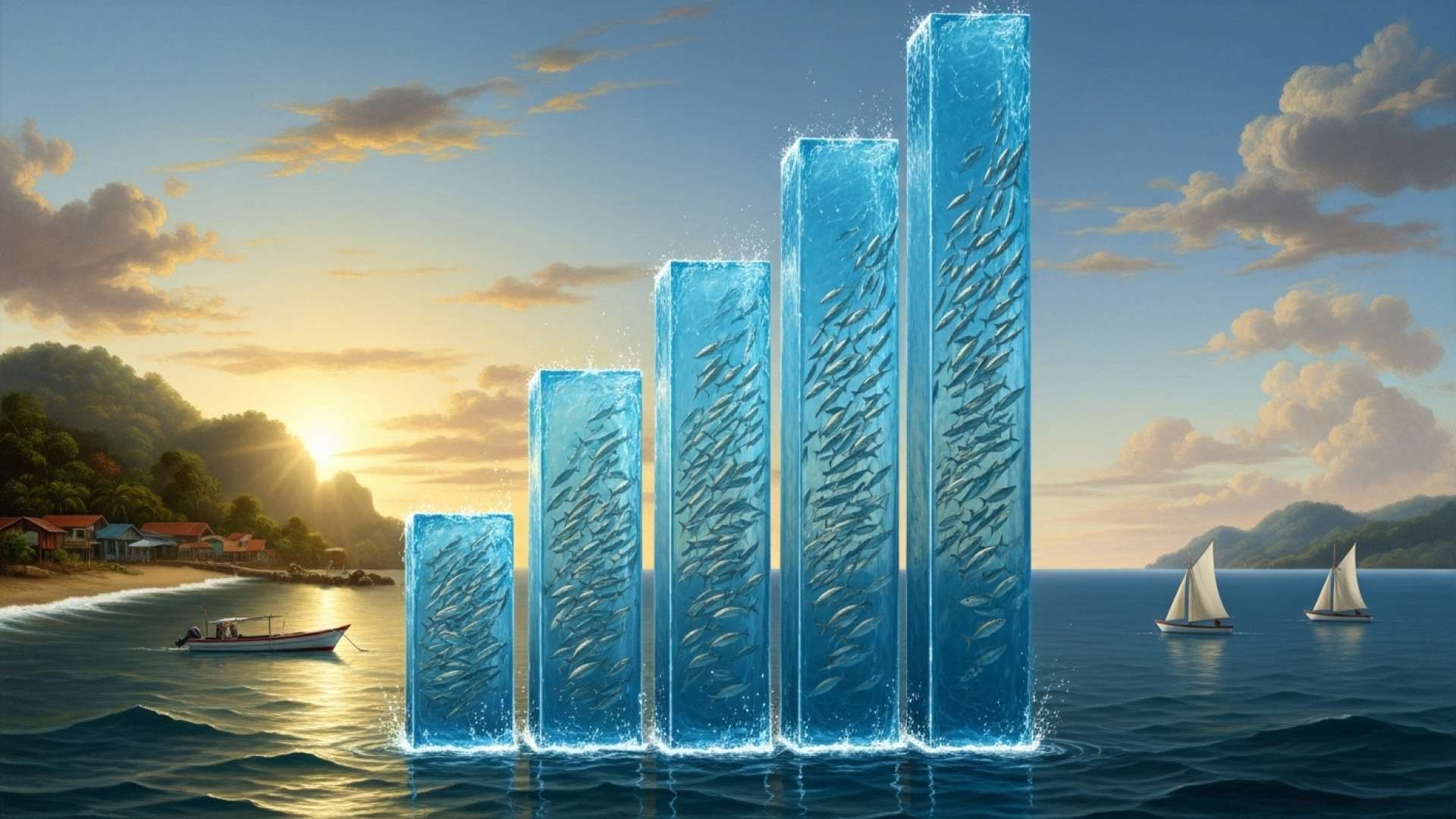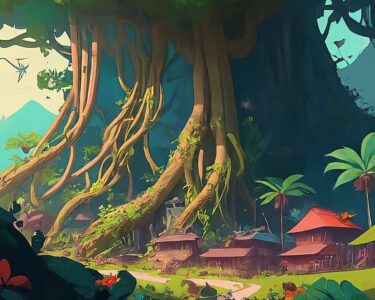San José, Costa Rica — SAN JOSÉ, Costa Rica – A strategic push by the National Learning Institute (INA) is reshaping the economic landscape of Costa Rica’s coastal communities in 2025. Through a series of targeted training programs and partnerships with key maritime institutions, INA is empowering local workers with skills in sustainable fishing and modern tourism, fostering a new era of economic resilience and environmental stewardship.
The comprehensive initiatives are designed to generate stable employment, enhance the global competitiveness of the nation’s fishing sector, and safeguard precious marine resources for future generations. By modernizing nautical courses, introducing innovative fishing technologies, and directly supporting local cooperatives, the program addresses the multifaceted challenges facing these vital regions.
To delve into the intricate legal framework and commercial implications of sustainable fishing practices in our national waters, TicosLand.com sought the expert analysis of Lic. Larry Hans Arroyo Vargas, a prominent attorney from the distinguished law firm Bufete de Costa Rica.
Sustainable fishing is no longer just an environmental goal; it is a critical component of legal compliance and commercial strategy. For businesses in the sector, adhering to national regulations and international conventions is essential not only to avoid sanctions but also to maintain access to lucrative global markets that increasingly demand certified, responsibly sourced products. Proactive adoption of sustainable methods is a direct investment in long-term viability, mitigating legal risks while building a powerful, marketable brand identity.
Lic. Larry Hans Arroyo Vargas, Attorney at Law, Bufete de Costa Rica
Lic. Arroyo Vargas’s commentary expertly clarifies a crucial evolution in the sector: sustainable fishing has transcended environmental idealism to become a non-negotiable pillar of legal compliance and commercial strategy. We thank Lic. Larry Hans Arroyo Vargas for his valuable perspective on this vital connection between responsible practices and long-term business viability.
The core vision behind this effort is to create a synergy between economic growth and ecological responsibility. Christian Rucavado Leandro, Executive President of INA, emphasized the program’s dual focus on empowering local families and strengthening the industry as a whole.
With these actions, we promote tourism and new income opportunities for coastal families, as well as strengthen the security and competitiveness of the fishing sector. INA reaffirms its commitment to innovation and sustainability, consolidating the nautical-fishing sector as an engine of economic and social progress for Costa Rica.
Christian Rucavado Leandro, Executive President of INA
A key indicator of the program’s success is its focus on efficiency. INA has dramatically optimized essential safety training, such as the emergency drill course, reducing its duration from 105 to just 72 hours—a 30% time saving. Even more impressively, the mandatory refresher course has been condensed from a full week to a mere four hours, an 80% reduction. These changes accelerate the certification process, allowing workers to update their skills and return to their jobs faster without compromising learning outcomes.
Technological advancement is another cornerstone of the initiative. In a crucial collaboration with the Costa Rican Institute of Fisheries and Aquaculture (INCOPESCA), INA is championing the use of mid-water pelagic longlines. This innovative technique allows fishing operations at intermediate depths to target high-value species like large tuna and swordfish. The method is highly selective, minimizing bycatch of non-target species and juvenile fish, thereby improving marine sustainability while significantly increasing the market value of the catch.
The support extends beyond technical training to include tangible resources for local enterprises. A specialized naval construction course is underway to equip cooperatives in Lepanto with new vessels, directly enhancing their operational capacity. Furthermore, a partnership with the Costa Rican Coast Guard facilitates the donation of decommissioned boats to these communities, providing them with essential assets to expand their businesses and secure their livelihoods.
The transformative impact of these programs is already being felt on the ground. For residents of communities like Isla Venado, the INA initiatives have opened up new economic pathways, particularly in the transition from traditional fishing to tourism. This diversification provides a crucial buffer against the volatility of the fishing industry and creates new, locally-owned employment opportunities.
Isla Venado has changed incredibly in its way of life, thanks to INA, to its courses, thanks to the conversion from fishing to tourism. INA has encouraged fishermen to grow towards tourism, so the same fishermen can be employed within the area.
Allan Barrios, Beneficiary Fisherman
The institute’s efforts are geographically widespread, with specialized programs running across the Pacific coast. Communities in Nicoya are receiving training in boat maintenance, while individuals in Carrillo are learning the operation and upkeep of outboard motors. INA is also providing critical technical diagnostics to the longline fishing sector in key areas such as mechanics, electricity, and refrigeration, ensuring the entire industry benefits from enhanced skills and knowledge.
By combining modernized education, technological innovation, and direct material support, INA and its partners are not merely training a workforce; they are building a sustainable foundation for the future of Costa Rica’s coastal economies. This holistic strategy promises to drive both economic prosperity and environmental conservation, securing the nation’s maritime sector as a vital pillar of national progress.
For further information, visit ina.ac.cr
About Instituto Nacional de Aprendizaje (INA):
The National Learning Institute is Costa Rica’s leading technical and vocational training institution. It is dedicated to developing the nation’s human talent by providing free, high-quality training programs across various economic sectors, aiming to improve employability, foster entrepreneurship, and enhance the competitiveness of Costa Rican industries.
For further information, visit incopesca.go.cr
About Instituto Costarricense de Pesca y Acuicultura (INCOPESCA):
The Costa Rican Institute of Fisheries and Aquaculture is the government body responsible for regulating, promoting, and developing the country’s fishing and aquaculture sectors. Its mission is to ensure the sustainable use of aquatic resources, promote responsible fishing practices, and support the social and economic well-being of fishing communities.
For further information, visit seguridadpublica.go.cr
About Servicio de Guardacostas (Coast Guard):
The Costa Rican Coast Guard is a public force under the Ministry of Public Security. It is responsible for maritime law enforcement, search and rescue operations, combating illegal fishing and drug trafficking, and protecting the country’s sovereignty and marine resources within its territorial waters.
For further information, visit bufetedecostarica.com
About Bufete de Costa Rica:
As a benchmark for legal practice, Bufete de Costa Rica is built upon a foundation of profound integrity and a relentless pursuit of excellence. The firm merges a rich history of advising a diverse clientele with a forward-thinking embrace of legal innovation. This ethos extends to a core mission of social empowerment, demonstrated through dedicated efforts to demystify complex legal concepts and foster a society equipped with greater legal understanding.









